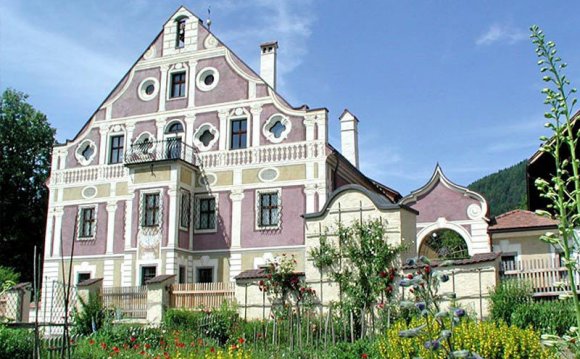
This glossary includes various types of housing arrangements for senior citizens. Some options listed may not be available at this time, but are listed here for your reference. For more information on housing options, contact your local Area Agency on Aging/Aging & Disability Resource Connection (ADRC)
MOBILE HOME PARKS contain spaces where manufactured housing units may be located and hooked‑up to utilities such as water, electricity, and heat. Generally a person owns his or her unit and rents the space from the mobile home park. Mobile home parks can be age restricted for people who are 55 years of age or older.
MULTI‑LEVEL FACILITIES refer to a number of types of residences that provide two or more levels of service. These levels range from independent living, to facilities with different types of supportive services, to skilled nursing care. Multi‑level facilities usually do not offer contract agreements pertaining to moving from one level of care to another, nor do they usually charge a substantial entrance fee. However, priority to move to another level of care is usually given to residents already living in some part of the development. Board and Care and residential health care units within a multi-level facility are regulated by the New Jersey Department of Community Affairs. Assisted living units and skilled nursing care units are regulated by the New Jersey Department of Health, Division of Health Facilities Evaluation and Licensing, 609-633-9051.
NURSING HOMES are residential facilities that provide 24‑hour supervision by licensed nurses. This care must be prescribed by a physician. Emphasis is on medical care, supplemented by physical, occupational, speech and other types of therapies. Personal care services, such as help with meals, bathing, dressing and grooming, are also provided along with social services, religious services, and recreational activities. A nursing facility offers care for individuals suffering from chronic diseases or conditions that do not require the constant attention of physicians. Services are provided which address the individual's personal care and social‑emotional needs. Nursing homes are licensed by the New Jersey Department of Health, Division of Health Facilities Evaluation and Licensing, telephone 609-633-9042.
RESIDENTIAL HEALTH CARE FACILITIES [RHCF] are facilities that provide health maintenance and monitoring services under the direction of a professional nurse. They provide a room, meals, linens, housekeeping, personal assistance, personal laundry, 24‑hour security, financial management, and recreation activities, as well as supervision of medication and limited health services. Rooms and baths may be private or shared. Most services are included in the rent, but some may be purchased separately. These facilities provide a home-like atmosphere and services while encouraging independence and assuring safety. These facilities are licensed, regulated and inspected by the New Jersey Department of Community Affairs.
SHARED LIVING RESIDENCES are homes in which unrelated people live together. The residence may be owned cooperatively, sponsored by a nonprofit organization, or owned or managed by a person who continues to reside there. Each person has a private bedroom, but bathrooms may be either private or shared. All other spaces in the house are shared. A residence generally accommodates five to fifteen residents who furnish and clean their own rooms. A volunteer or paid manager is usually responsible for overall maintenance, housekeeping, shopping, and dinner preparation. Breakfast and lunch may be prepared individually. Most group residences are licensed as Class B or Class C boarding homes.
SUBSIDIZED APARTMENTS FOR THE ELDERLY are rental units, generally in the form of garden apartments or apartments in high‑rise or mid‑rise buildings. The units have been specially designed for, and are limited to, people who are at least 62 years old or have a disability. Construction or rental costs are financed by the local, state, or federal government. Sponsors of this housing include nonprofit or limited profit organizations or public housing authorities. There are income limitations for eligibility for this type of housing, and the rents are usually subsidized, with the amount of rent based upon the income of the household. There are usually lengthy waiting lists for this housing. Occasionally, it is possible to find a CONGREGATE HOUSING SERVICES PROGRAM and ASSISTED LIVING PROGRAM available within some subsidized housing settings. In some buildings, recreational activities and support services such as meals, housekeeping, or transportation are provided. Fees for services may be included in the rent or charged separately. Lists of senior citizen subsidized housing in each county can be obtained from the Department of Community Affairs website.
RELATED VIDEO












